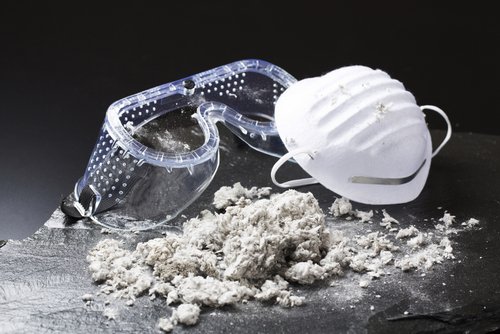Inherited mutations in the genes responsible for the maintenance and repair of a cell’s DNA can help explain why some people develop malignant pleural mesothelioma (MPM) upon asbestos exposure while others don’t.
Th study, “Germline mutations in DNA repair genes predispose asbestos-exposed patients to malignant pleural mesothelioma,” published in Cancer Letters, supports arguments that a genetic component can contribute to mesothelioma in people exposed to asbestos at a workplace, through the environment, or elsewhere.
Asbestos is a well-known cancer-inducing agent that interferes with the cellular division process, and induces chronic inflammation mechanisms. These prime an environment for cancer cell transformation and progression, and the link between inhaled or swallowed asbestos fibers and mesothelioma is well-established.
But it’s also known that not all individuals exposed to asbestos develop the cancer, while in some families reports show that multiple members are affected following exposure. These facts led researchers in Italy to investigate whether asbestos-derived cancers like MPM may be influenced by a person’s genetic predisposition.
Specifically, the team looked into the genes of 93 patients with MPM who lived in the Piedmont region of northern Italy, an area known to have exposed residents to high levels of asbestos. Of these people, 77 were diagnosed with sporadic MPM, and 16 had a family history of the disease.
Using next-generation sequencing technology, the researchers analyzed the genetic sequence of a panel of 94 genes previously associated with cancer. They identified 772 variants of these genes in the cohort. Only 10 of those variants, found in nine patients, were considered potentially harmful and selected for further testing.
The 10 affected genes — PALB2, BRCA1, BRCA2, FANCI, ATM, SLX4, FANCC, FANCF, PMS1, and XPC — are key participants in DNA repair pathways. Among these, only the BRCA1 and BRCA2 mutations had previously been linked to cancer. A “substantial proportion” of the MPM patients evaluated — 9.7% — had mutations in these repair genes, the researchers reported.
“It is thus possible to hypothesize that these patients, because of their defect in DNA repair, were less able to repair DNA damage induced by asbestos,” they wrote.
To evaluate the potential involvement of these 10 mutations in the development of MPM, the team screened a control panel of 96 individuals — also from the Piedmont region — without cancer and most (71) without any respiratory condition (the others had past hospitalizations for non-cancerous respiratory problems). The researchers reported no findings of any of the 10 gene variants in this control group, a finding that appears to confirm the specificity of the mutations in the MPM samples.
In addition, the researchers found that the patients who carried these mutations have had significantly lower asbestos exposure than those without the mutations (a quantitative mean exposure of 3.8 versus 24.9), further supporting the hypothesis that genetic variants in DNA repair genes could represent genetic risk factors for MPM.
“This study shows that germline [inherited] variants in several genes may increase MPM susceptibility in the presence of asbestos exposure and may be important for specific treatment,” the researchers wrote.
“The characterization of mutation carriers within these families is of particular clinical importance because all carriers are at risk for a certain cancer spectrum and should be included in specific high-risk surveillance and secondary prevention programs,” they added.



One comment